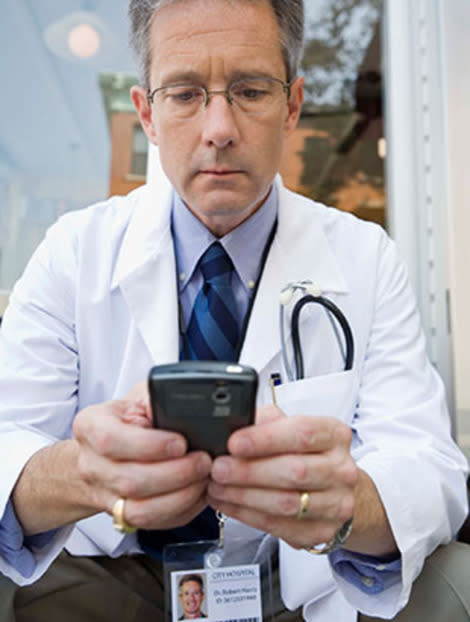Should You Text with Your Doctor?

By Deborah A. Wilburn
You have the flu, a 104 degree temperature, and haven't been able to keep anything down all day. You're not sure if you should go to the ER. Or you're post-op for knee surgery and need clarification on pill dosage. In these and other instances when you need a quick answer, the typical protocol is to call your doctor's office and leave a message with the receptionist or an answering service. When you'll hear back is anyone's guess.
But what if you could text your doctor with a simple question -- and get a response almost instantly?
That type of easy access is still more dream than reality. According to a National Physicians Survey conducted by Sharecare.com, a leading interactive health and wellness website, only 6% of physicians text with their patients. That translates to about 60,000 doctors nationwide.
Two doctors who understand that we're living in an increasingly mobile world find that texting with patients is not only a time-saver, it's a better way of providing care.
"People don't even have landlines anymore," says Howard J. Luks, MD, an orthopedic surgeon who is Chief of Sports Medicine and Arthroscopy at Westchester Medical Center and Associate Professor of Orthopedic Surgery at New York Medical College. "I started to recognize how we as a society operate and how patients prefer to be contacted." He notes that for him, texting was a natural progression from emailing with patients. In terms of privacy issues, Luks uses two HIPPA-compliant platforms -- one for texts and one for emails. That way communications are kept private and can be easily downloaded to the patient's electronic file. How soon does he respond? "As soon as I get it."
Get the most from your annual check-up: questions you must ask
For Adam Schaffner, MD, a plastic surgeon in Manhattan, texting also came about by patient choice. "I stopped wearing a pager since it took too much time for me to get messages," says Schaffner. "I started giving patients my cell phone number, and they started texting me instead of calling." Schaffner adds that the texts are meant to be an initial point of contact, not a long medical discussion. Also, he says, his patients receive such detailed instruction before and after surgery that usually few questions remain.
RXexting the Right Way
For best results, follow these text etiquette tips:
Ask your doctor if you can have his or her cell phone number and if you can text any important questions during the day.
Check that your doctor uses a HIPPA-compliant platform. If not, your texts will function more as a pager substitute, as Schaffner uses his.
Keep messages short. Your query should be about a single, simple issue, such as how often to change a wound's dressing. Luks notes that patients may be more willing to text a question they'd otherwise feel hesitant to call about for fear of "bothering" the doctor.
Texts should not be about routine matters; save general queries for your next appointment.
Using texts for bona fide emergencies is somewhat frowned up, says Luks. If you need immediate medical care (for example, sudden chest pain) you can send a text but if it's not answered within a few minutes, call the doctor's office and have him or her paged, or go straight to the emergency room.
Cut food confusion! 7 easy dietary guidelines anyone can follow
Deborah A. Wilburn is Senior Editor/Producer at RealAge.com. She does not text with her doctor; she's still trying to reach her by phone.
Get More Health Tips From RealAge
RealAge Test: Reverse body aging now with the free RealAge test
6 Natural Remedies for Chronic Back Pain
How Low Testosterone Messes With Your Guy's Health
More Reasons Why Soda -- Regular or Diet -- Is Bad for Women's Health
Are You Overdosing on Vitamins?
